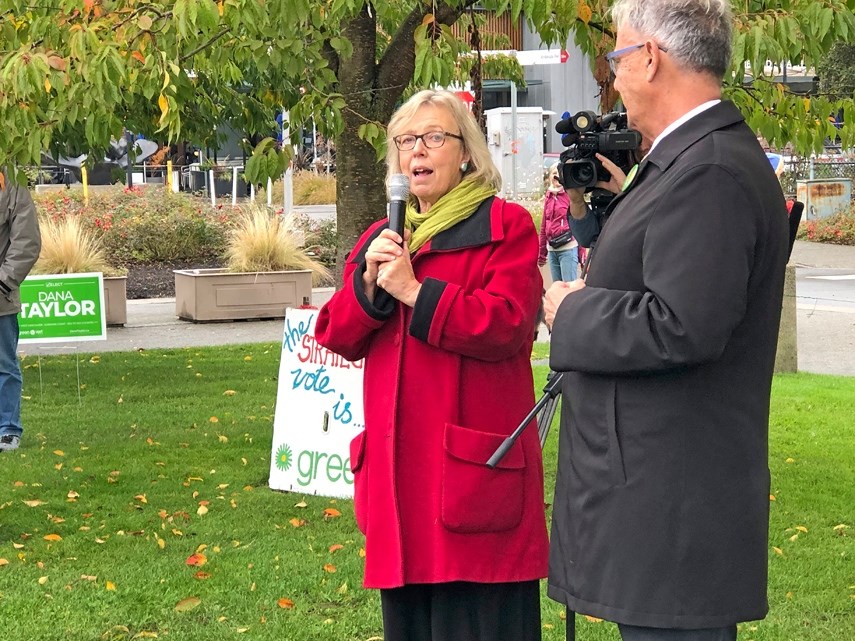Many political parties are engaged in navel-gazing assessments of their futures these days, but none more than the federal and provincial Green parties.
The departures of the leaders of both parties – Elizabeth May has already stepped down from the federal post while Andrew Weaver is on his way out as the B.C. party leader – means they by necessity will tackle some big internal issues as they try to forge a new identity.
Each party’s “brand” has become strongly identified with their leaders in recent years. Both of them transcend their own parties when it comes to popularity and name recognition.
It will be a challenge for each party to overcome the loss of their two most visible assets. It took several years for May and Weaver to establish some kind of credibility in their respective arenas, and their successors will face a stiff challenge trying to repeat their efforts in a short period of time.
And the Greens do not have a lot of time, at either level of government. The next elections at both the federal and provincial levels will be critical ones for both parties.
While they have made breakthroughs of sorts by electing some candidates, they amount to tiny breakthroughs.
Winning just three seats at either level simply does not get it done when it comes to arguing that it is in the political big leagues.
The party ran a dismal federal election campaign, marked by a number of gaffes by May and some candidates, and any high hopes going into it were dashed on election night.
While the party won two seats in B.C., a closer look at the election results showed the party is still a very long ways from being regarded as a major player. The Greens finished fourth (or worse) in 33 of the province’s 42 ridings, and most of those were very distant fourths.
Its only area of perceived strength remains parts of Vancouver Island, and that is about it. Even in that region, the NDP woke up near the end of the campaign and turned its gun sites on the Greens in a manner that had not occurred before.
You can be sure the NDP will not be caught napping again on the Island come the next election campaign.
The federal party will also soon find itself somewhat marginalized in the next minority Parliament. With just three seats, it does not have the numerical heft to be part of any conversation Prime Minister Justin Trudeau needs to have with other parties to remain in power.
May garnered some headlines recently by announcing that her support for the Liberals’ Throne Speech would hinge on whether it promised strong policies to tackle climate change and other things. However, at the end of the day, how the Greens vote in confidence votes is irrelevant.
Provincially, things look a little brighter, but not much. Weaver’s looming departure will be a major blow and I would not bet on the Greens being able to hang onto his Oak Bay-Gordon Head seat, as both the B.C. Liberals and the NDP – both of which held that riding for decades – will prioritize winning there in 2021.
While sitting Green MLAs Sonia Furstenau and Adam Olsen have to be considered favoured to hold their seats in 2021, the rest of the political landscape looks fairly bleak for the party.
The Greens finished a distant third in more than 70 of the province’s 87 ridings and, other than the ones they won, were not really competitive in the others. Some argue that the party’s spike in overall popular vote was due in large part to an anti-Christy Clark sentiment in that election that won’t be a factor in the next campaign.
So the question has to be asked: is this the high water mark for both the federal and provincial Green parties? Is this as good as it gets?
On the other hand, can both parties expand their popularity and reach without the two individuals who have led them to minor electoral success?
Some key questions that will need answering sooner than later.
Keith Baldrey is chief political reporter for Global BC. [email protected]
What are your thoughts? Send us a letter via email by clicking here or post a comment below.



